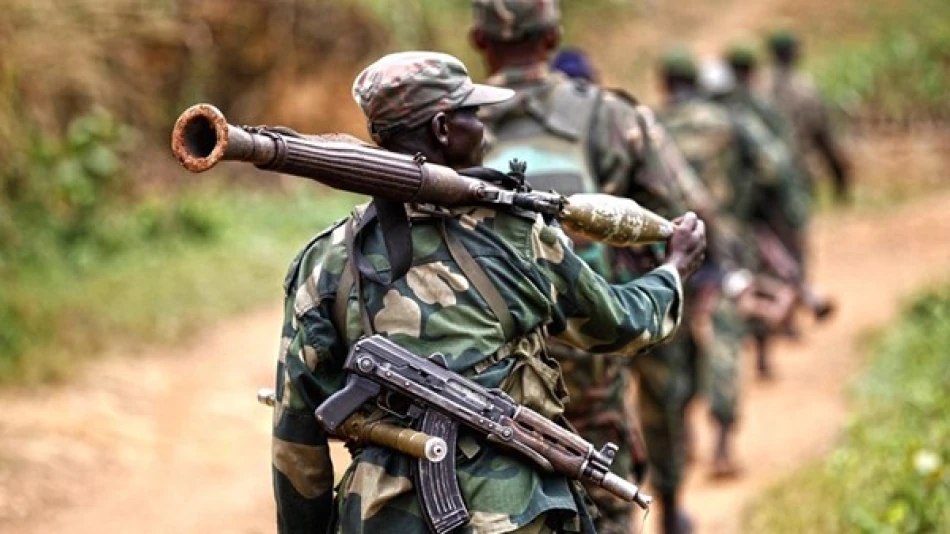
Deadly Attack Strikes Congolese Church, Leaving Worshippers in Mourning
ISIS-Backed Militants Kill at least 21 in Church Attack as Eastern Congo's Security Crisis Deepens
At least 21 people were killed in a pre-dawn assault on a Catholic church in eastern Democratic Republic of Congo, carried out by ISIS-affiliated rebels who also torched homes and businesses. The attack underscores the escalating security breakdown in a mineral-rich region that has become a battleground for dozens of armed groups, threatening both local populations and global supply chains for critical resources.
The Attack: Coordinated Violence in Komanda
Members of the Allied Democratic Forces (ADF), a rebel group with ties to ISIS, launched the assault around 1 a.m. on the Catholic church in Komanda, located in eastern Congo's Ituri province. The attackers killed victims both inside and outside the church before setting fire to surrounding homes and shops, according to Dieudonne Duranthabo, a civil society coordinator in Komanda.
While local officials report at least 21 deaths, a Congolese army spokesperson in Ituri province confirmed 10 fatalities. The discrepancy reflects the chaos and communication challenges that often follow such attacks in remote areas where government presence remains limited.
ADF's Growing ISIS Connection
The Allied Democratic Forces has evolved from a Ugandan rebel group into one of the deadliest ISIS affiliates in Africa. Originally formed in the 1990s, the ADF pledged allegiance to ISIS in 2019 and has since adopted the terror organization's tactics, including targeting religious sites and civilian populations.
This transformation has made the ADF a regional security threat extending beyond Congo's borders. The group's attacks have intensified since 2021, with church bombings, school massacres, and village raids becoming increasingly common across North Kivu and Ituri provinces.
Eastern Congo's Persistent Instability
The Komanda attack highlights the Congolese government's ongoing struggle to control its eastern territories, despite the presence of UN peacekeepers and regional military interventions. More than 120 armed groups operate in eastern Congo, many fighting for control of lucrative mining areas that produce cobalt, coltan, and gold essential for global technology supply chains.
This instability has created a humanitarian crisis affecting over 5 million displaced people, while also disrupting international markets dependent on Congolese minerals. Major tech companies and automakers have faced increasing pressure to ensure their supply chains don't fuel conflict in the region.
Regional and International Implications
The persistence of ISIS-affiliated violence in eastern Congo poses challenges beyond the country's borders. Unlike successful counter-terrorism operations in Iraq and Syria, the dense forests and weak governance in eastern Congo provide ideal conditions for extremist groups to rebuild and expand.
For international investors and commodity markets, continued instability threatens supply security for critical minerals needed in electric vehicle batteries and renewable energy infrastructure. The European Union and United States have already implemented due diligence requirements for companies sourcing minerals from conflict zones, but enforcement remains challenging.
The attack also underscores the limitations of current international interventions. Despite billions spent on UN peacekeeping and regional military cooperation, armed groups continue to operate with relative impunity, suggesting that security solutions alone cannot address the underlying governance and economic challenges that fuel conflict in the region.
Most Viewed News

 Layla Al Mansoori
Layla Al Mansoori






